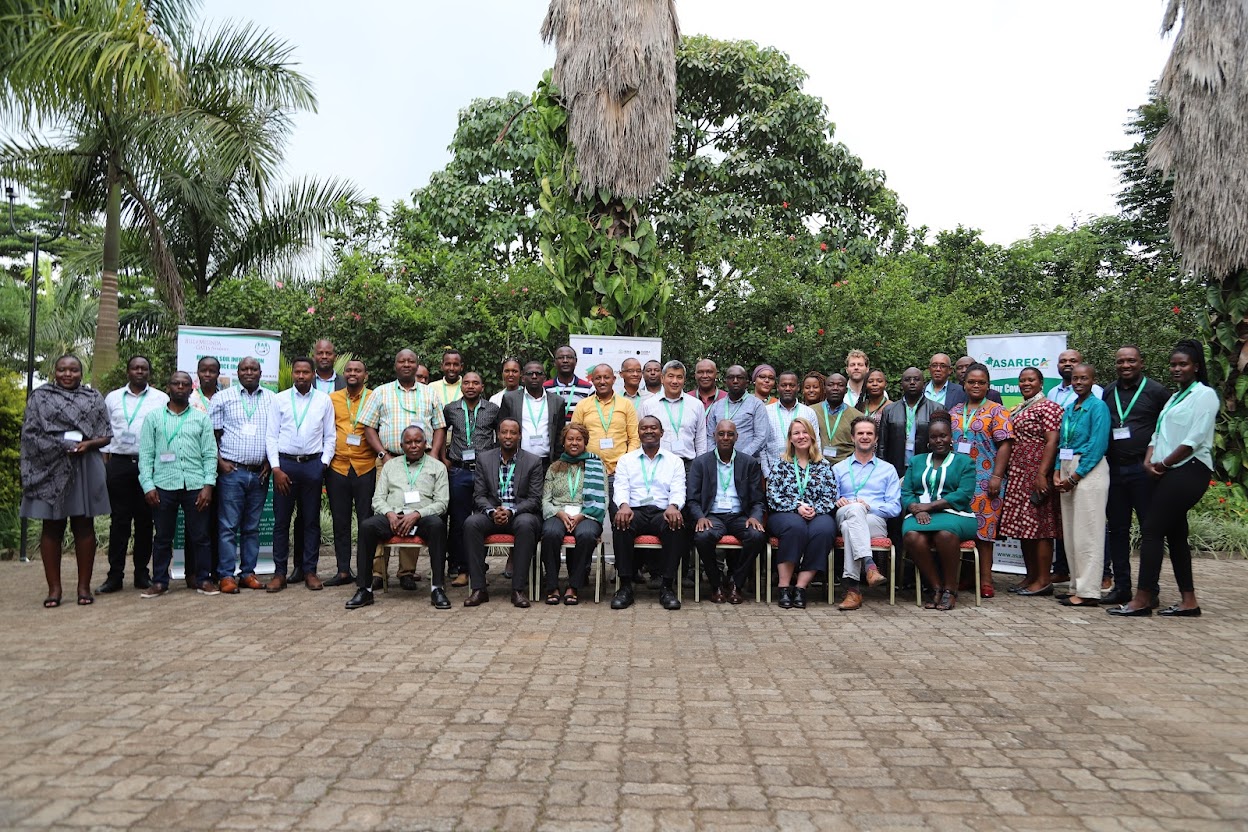Land, Soil and Crop Information Services (LSC-IS) Project for Climate-Smart Agriculture launched in Rwanda

The LSC-IS project is implemented in three countries by national and international organisations, which are Rwanda Agriculture and Animal Resources Development Board (RAB), Kenya Agricultural and Livestock Research Organization (KALRO), the Ethiopian Institute of Agricultural Research (EIAR), the International Livestock Research Institute (ILRI), the International Soil Reference and Information Centre (ISRIC), the Wageningen Centre for Development Innovation (WUR), World Agroforestry (ICRAF), and the Association for Strengthening Agricultural Research in Eastern and Central Africa (ASARECA).
Genevieve Apio & John Recha
KIGALI, RWANDA: The Land, Soil, and Crop Information Services (LSC-IS) to support Climate Smart Agriculture (CSA) project funded by the DeSIRA program of the European Union along with ISRIC and the Netherlands Government was launched in Rwanda on 10th November 2022. The launch was done by the host national institution, the Rwanda Agriculture and Animal Resources Development Board https://www.rab.gov.rw/ and presided over by the RAB Deputy Director General Dr. Charles Bucagu https://youtu.be/jxuYXNaJY5s https://youtu.be/3CPSMmYdfP4 of RAB @RwandaAgriBoard.
In his opening remarks, Dr. Bucagu highlighted that agriculture is crucial for Rwanda’s growth and poverty-reduction. As the backbone of the economy, it accounts for about 39 percent of gross domestic product (GDP), about 80 percent of employment, about 63 percent of foreign exchange earnings, and about 90 percent of the country’s food needs.
The sector is challenged by land constraints, specifically land degradation and soil erosion, poor water management, and small average land holdings that are further fragmented into diminutive size fields due to the increasing population pressure. Besides, around 90 percent of Rwandan territory lies on slopes hence more susceptible to soil loss and decreasing fertility. These are exacerbated by the variable and changing climate, and need efforts to develop sustainable land, soil, crop information hubs to support climate smart agriculture.
“Sustainable land, soil, crop information hubs are essential to providing farmers and support stakeholders with information on rainfall patterns, crop suitability, soil fertility status, nutrient requirements, commodity markets, among other valuable information that enables them to make smart decisions, increase their productivity and income, and strengthen resilience to climate related risks” – Charles Bucagu.
The LSC-IS project is implemented in three countries by national and international organisations, which are Rwanda Agriculture and Animal Resources Development Board (RAB), Kenya Agricultural and Livestock Research Organization (KALRO), the Ethiopian Institute of Agricultural Research (EIAR), the International Livestock Research Institute (ILRI), the International Soil Reference and Information Centre (ISRIC), the Wageningen Centre for Development Innovation (WUR), World Agroforestry (ICRAF), and the Association for Strengthening Agricultural Research in Eastern and Central Africa (ASARECA).
The launch event was followed by a series of three needs assessment workshops. The national workshop was held in Kigali from the 10th to 11th November 2022. The first subnational workshops were held in Musanze district on 14th to 15th November 2022, while the second subnational workshop was held in Rwamagana district on 17th to 18th November 2022. These form a part of the LSC-IS project Work Package 2 that focuses on agricultural sector assessments and stakeholder overviews at national and local levels and information needs assessments of users at national and local levels, as well as an assessment of the capacity of the hub host. These will provide the requirements for the design of the hub.
The Land, Soil, and Crop Information Services (LSC-IS) project will develop a hub, hosted at the Rwanda Agriculture and Animal Resources Development Board (RAB). It is expected that the hub will be useful for the 12-agroecological zones of country. From the national workshop, participants mentioned that the hub is important for:
- Bringing together data on various themes like soil, crops, land, postharvest technologies, weather, and markets for agricultural produces
- Linking hubs to the decision-making processes of users
- Addressing based on user needs and skills
- Facilitating open data culture on agriculture related information
- Building a strong network of data users and producers
- Identifying AKIS players and catalysing linkages to farmers
- Enhancing agricultural policy and informing the development of viable agriculture business models.
